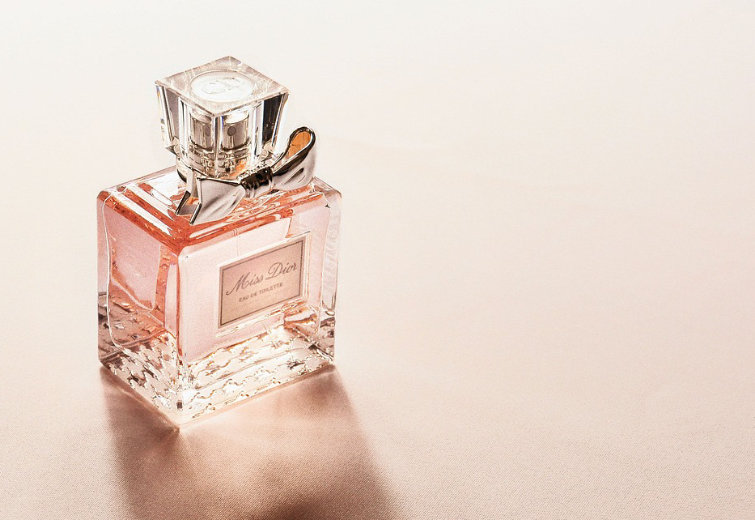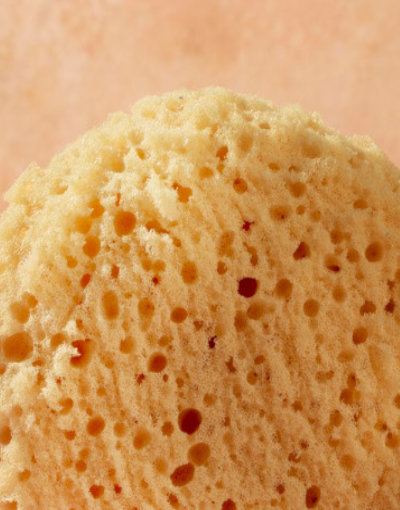Encapsulation
Fragrance encapsulation is one of the most innovative technologies in the modern perfume industry. This technique allows for the controlled and prolonged release of a perfume's notes, improving both the durability and sensory experience of the product. In addition to its application in perfumes, this technology has found widespread use in cosmetics, cleaning products, and other consumer products that require controlled fragrance release over time.
Fragrance encapsulation can be described as a process whereby aromatic molecules are trapped inside microcapsules, which are then gradually released when broken or activated. This method improves the effectiveness and longevity of fragrances and allows for greater customization in formulations.

1. Fragrance Encapsulation
Fragrance encapsulation involves enclosing aroma molecules within a capsule or shell, typically made from biocompatible materials such as polymers, waxes, starches, or liposomes. These capsules are extremely small in size (in the micrometer or nanometer range) and are activated under different conditions, such as friction, heat, skin contact, or even humidity.
When the capsule is activated, the fragrance is released in a controlled manner and in smaller quantities over time, which means that the perfume does not evaporate quickly and can last longer on the skin or in the product. This is especially important in the case of long-lasting perfumes, as consumers seek an olfactory experience that lasts throughout their day.
2. Benefits of Fragrance Encapsulation in Perfumery
Fragrance encapsulation offers a number of key benefits for both perfume manufacturers and consumers:
Improved Durability
- Long-lasting: One of the most immediate benefits is that it makes the perfume last longer. The capsules protect the volatile molecules in the fragrance from evaporating too quickly, allowing the scent to be released gradually and keeping you feeling fresh for longer.
- Controlled release: Instead of releasing all the perfume at once, encapsulation allows for a slow and gradual release of fragrance molecules. This means that consumers can enjoy a longer-lasting perception of the perfume's notes throughout the day.
Protection of Sensitive Ingredients
- Perfume molecules can be sensitive to factors such as temperature, light, or humidity, causing them to break down or lose intensity over time. Encapsulation helps protect these volatile substances, improving their stability during product manufacturing, transportation, and storage.
Enhancing the Sensory Experience
- Progressive release: The encapsulation technique offers a richer and more complex olfactory experience, in which the top notes (the most volatile) and base notes (the most long-lasting) are perceived in a more balanced and gradual way. Instead of the perfume fading quickly, the consumer can experience a continuous transition of the different notes of the fragrance over time.
- Tactile sensation: Some encapsulation technologies also allow the capsules to break upon contact with the skin, creating a tactile sensation that enhances the user's sensory immersion.
Product Customization
- Encapsulation offers a new avenue for perfume customization. By encapsulating different molecules in individual capsules, manufacturers can design fragrances that are released in different phases, providing a unique olfactory experience for each customer. This customization can be based on individual preferences for fragrance notes or on interaction with the consumer's body (body temperature, pH, etc.).




3. Applications of Fragrance Encapsulation in the Perfume Industry
Fragrance encapsulation has various applications in the perfume industry:
Long-Lasting Perfumes
- Encapsulation allows for increased longevity of fragrances without the need for additional chemicals. By encapsulating the most volatile ingredients, perfumes maintain their intensity for longer, resulting in greater customer satisfaction.
Cosmetics and Skin Care
- In products such as creams, lotions, and serums, fragrance encapsulation can ensure that the scent is released gradually as the product is absorbed into the skin. This provides a long-lasting sensory experience and also enhances the freshness of the products.

Personal Hygiene and Air Fresheners
- Encapsulation is also used in personal hygiene products, such as shower gels, deodorants, and air fresheners, for prolonged fragrance release. In this case, the technology can allow the scent to be released over a long period of time, even after the product has been absorbed or evaporated.













